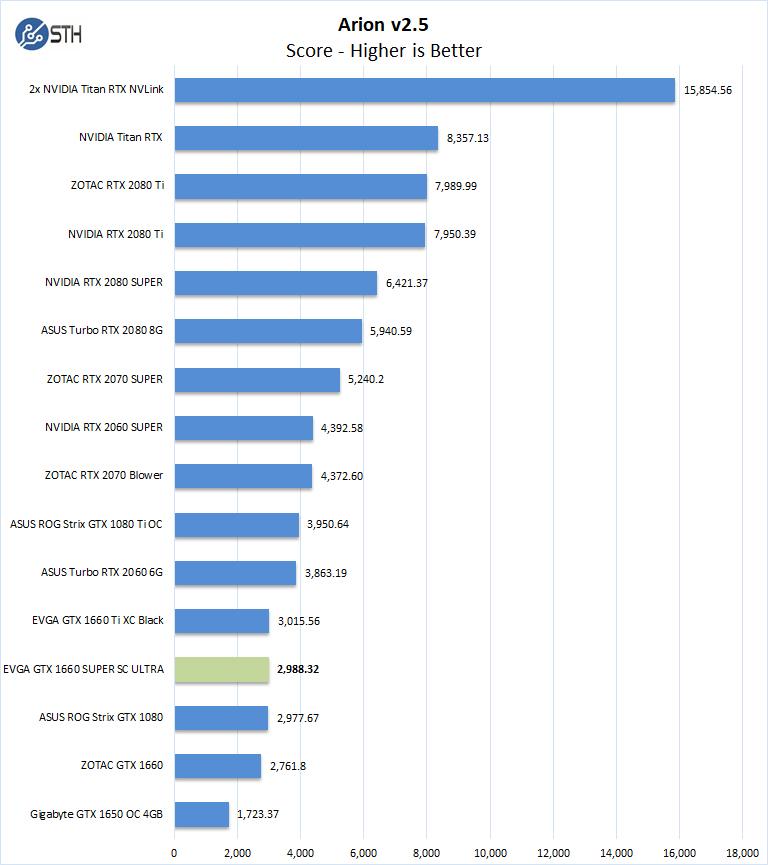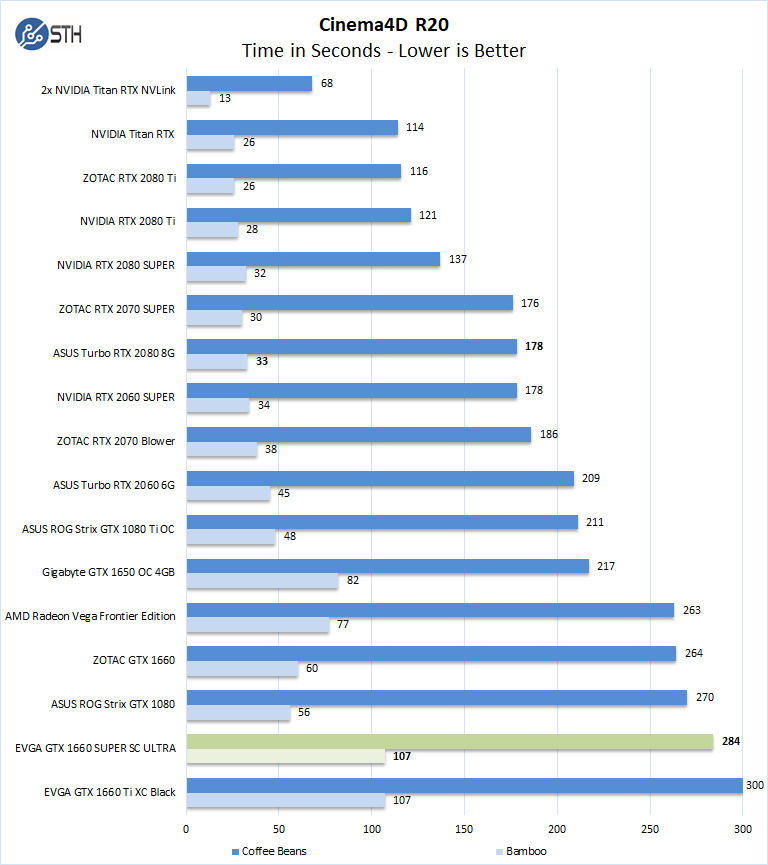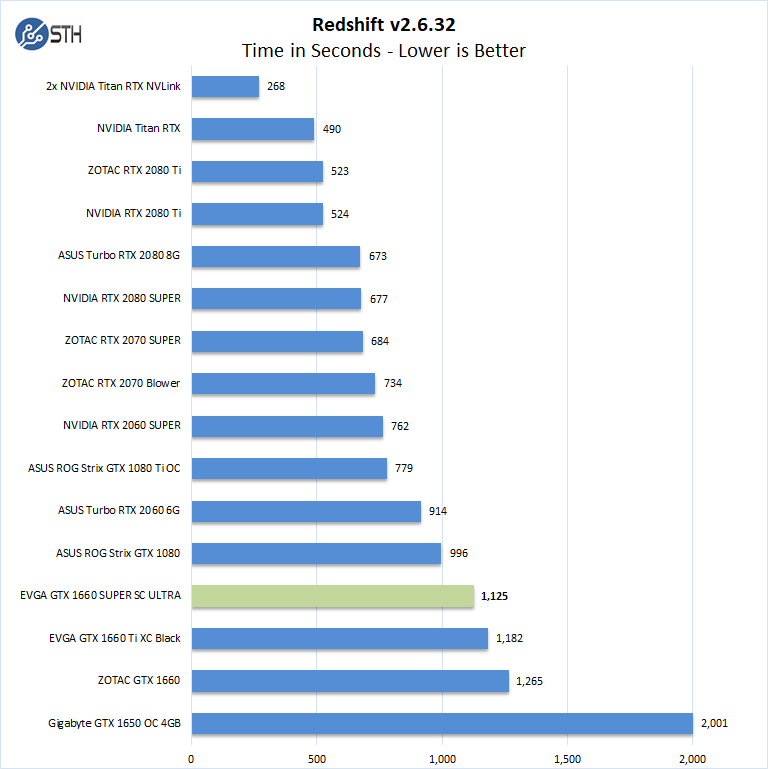EVGA GeForce GTX 1660 Super SC Ultra Rendering Related Benchmarks
Next, we wanted to get a sense of the rendering performance of the EVGA GeForce GTX 1660 Super SC Ultra.
Arion v2.5
Arion Benchmark is a standalone render benchmark based on the commercially available Arion render software from RandomControl. The benchmark is GPU-accelerated using NVIDIA CUDA. However, it is unique in that it can run on both NVIDIA GPUs and CPUs.
Download the Arion Benchmark from here. First-time users will have to register to download the benchmark.

Here we wanted to point out that the GeForce GTX 1660 Super performance is near the GTX 1660 Ti and just above a previous generation, yet higher-end ASUS ROG Strix GTX 1080 Ti.
MAXON Cinema4D 3D
ProRender is an OpenCL based GPU renderer which is available in MAXON’s Cinema4D 3D animation software. A fully functional 42-day trial version is available for downloaded from the MAXON website here. Note: Even after expiration, the trial can still be used to measure render times.

Cinema4D is an odd case where the GTX 1660 performs better, most likely because of better cooling.
Redshift v2.6.32
Redshift is a GPU-accelerated renderer with production-quality. A demo version of this benchmark can be found here.

Here the NVIDIA GeForce GTX 1660 Super is slightly faster than the Ti version, but they are in an almost dead heat.
Next, we will have 3DMark results before moving onto power consumption, thermals, and our final thoughts.




Being a “compute card” isn’t an excuse of putting DVI-D port into it. It should be common to have 3x DisplayPort and 1x HDMI.
@Bull
Lots of 144Hz gaming monitors sold a few years back used an out-of-spec DVI-D input that requires more power than a USB-powered Displayport to Dual-Link adapter can provide.